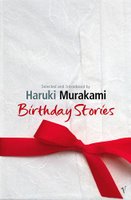
快樂並不是因爲擁有的多,而是需要的少。

 我今年收到的第一份圣诞礼物, D O R A E M O N
我今年收到的第一份圣诞礼物, D O R A E M O N



 I went to this old temple in Chinatown with my mum.
I went to this old temple in Chinatown with my mum. 今天早上,我和姐姐,妹妹和弟弟一起去湖滨公园参加一个活动,Terry Fox Run。我们一早去到集合地点,那里有很多人,也有很多档口提供香蕉,苹果,矿泉水,Milo和咖啡。都是免费的。
今天早上,我和姐姐,妹妹和弟弟一起去湖滨公园参加一个活动,Terry Fox Run。我们一早去到集合地点,那里有很多人,也有很多档口提供香蕉,苹果,矿泉水,Milo和咖啡。都是免费的。
这篇文章,它的格式是根据马来西亚教育部教学纲要"小学部"的科目所写出的一则每日新闻。前一阵子,看到有一小孩的每日新闻作业簿,顿时令我动心,想写一篇类似的文章。因为我也曾经当过小学生。。。
 I took this novel out from my bookshelf last week and read it again. Not particularly like this novel but it'd remind me of a younger self as I bought this novel at the Brisbane International Airport on 23 May 1996. WHY I bought this book? Because it looks glamourous reading a THICK book during the flight and I always, really thought so when I was so much younger then. HAHA..
I took this novel out from my bookshelf last week and read it again. Not particularly like this novel but it'd remind me of a younger self as I bought this novel at the Brisbane International Airport on 23 May 1996. WHY I bought this book? Because it looks glamourous reading a THICK book during the flight and I always, really thought so when I was so much younger then. HAHA.. ABOUT THIS BOOK
"AN OFTEN LYRICAL AND ALWAYS TOUGH-MINDED DEBUT . . . Provides rare insight into the three cultures--Spanish, Chinese, and Filipino--that coexist in the Philippines."
--The New York Times Book Review
Caridad's mother never writes. So when a letter arrives for her in Sydney from Manila, Caridad doesn't even recognize her mother's handwriting. There is more distance than just miles between the two women. And that is why Caridad is called home. Her mother needs to talk. And to reveal a secret that has been weighing heavily on her for years.As Caridad hears at last the unspoken stories, and the never forgotten tragedy of the war years, she will learn a startling truth that will change her life forever. For Caridad is not who she thinks she is. . . ."Beautifully written . . . Reading each chapter is like having a conversation with a close friend."
"A sensitive . . . portrait of a family of Filipina women . . . The novel illuminates much modern Philippine history."
author spotlight
Arlene J. Chai was born and educated in Manila. In 1982, she migrated to Sydney with her parents and sisters and now lives in Northern Beaches. After more years as an advertising copywriter than she cares to mention, she had a year off during which she wrote The Last Time I Saw Mother. She is at work on a second novel.
 这张照片是在KL的联邦酒店顶楼的旋转餐厅 Bintang Revolving Restaurant 所拍摄的. 是夜为Sally这次返马的最后一夜.
这张照片是在KL的联邦酒店顶楼的旋转餐厅 Bintang Revolving Restaurant 所拍摄的. 是夜为Sally这次返马的最后一夜.

 話說在40年前, 即1966年8月2日0810hr, 在赤道的一個叫PENANG的島嶼上誕生了一名男嬰。 那一天並沒什麼特殊的事情發生, 一切如常, 平淡如水。 那個男孩的父親給他取了個名字 - 林祥虎。 這個男孩天性樂觀, 在平淡的生活中逐漸成長。。。
話說在40年前, 即1966年8月2日0810hr, 在赤道的一個叫PENANG的島嶼上誕生了一名男嬰。 那一天並沒什麼特殊的事情發生, 一切如常, 平淡如水。 那個男孩的父親給他取了個名字 - 林祥虎。 這個男孩天性樂觀, 在平淡的生活中逐漸成長。。。 
OYAJI(大叔), GANBARE(加油)。。。

 這不是 Cecelia AHERN 的PS. L Love You讀後感言。 其實之前我也不曉得她是何方神聖。 只不過几個星期前看到一篇Book Review里推薦了這本書, 想到很久都沒讀過一本輕鬆的, 那種讀起來毫無壓力的書, 之後我開始了尋找她的蹤跡。
這不是 Cecelia AHERN 的PS. L Love You讀後感言。 其實之前我也不曉得她是何方神聖。 只不過几個星期前看到一篇Book Review里推薦了這本書, 想到很久都沒讀過一本輕鬆的, 那種讀起來毫無壓力的書, 之後我開始了尋找她的蹤跡。 這本書描述大時代一群知識分子的命與運。章詒和是以晚輩的眼光側寫父母的友人──史良、儲安平、張伯駒、康同璧、聶紺弩、羅隆基等人,他在中國大陸「反右」及「文革」的血雨腥風中,整肅、清算、鬥爭的紅潮席捲下,受迫害的、參與迫害的,這些人之間的恩怨情仇與人性的幽微曲折,在她細膩的筆觸、獨特的視角與溫厚的學養,將其風骨刻畫出來,也折射出一個時代的風光雲影。
這本書描述大時代一群知識分子的命與運。章詒和是以晚輩的眼光側寫父母的友人──史良、儲安平、張伯駒、康同璧、聶紺弩、羅隆基等人,他在中國大陸「反右」及「文革」的血雨腥風中,整肅、清算、鬥爭的紅潮席捲下,受迫害的、參與迫害的,這些人之間的恩怨情仇與人性的幽微曲折,在她細膩的筆觸、獨特的視角與溫厚的學養,將其風骨刻畫出來,也折射出一個時代的風光雲影。 閱讀的理由有千百種, 如果不嘗試閱讀, 我們永遠不會知道自己為什麼閱讀。
閱讀的理由有千百種, 如果不嘗試閱讀, 我們永遠不會知道自己為什麼閱讀。KAK Maria來至印尼, 一來就待在PENANG, 在我叔叔經營的咖啡店待了整11年. 現在的她已經能夠操得一口流利的福建話.
我媽常誇說她是一個勤力的人.
在我哥眼里, KAK Maria是一個SUPERMAN. 因為她能夠輕易的用腰圍扛著兩包10Kg的白糖, 從對面的老家越過馬路扛到咖啡店去. 我哥走的時候, 她也哭了。。。
在清明時節, 我回去了PENANG. 去了鶯羅茶室一倘. 閒聊間(也拍下了這張照片), 我發覺我更喜歡她的樂觀.
KAK Maria, 我想說:
Semoga dirimu senantiasa berbahagia.
正如曾經聼過有個印尼傭人說過"Kurang masin, tambahlah garam. Kurang manis, tambahlah senyum...也许她就是以微笑添加生命的欢乐。